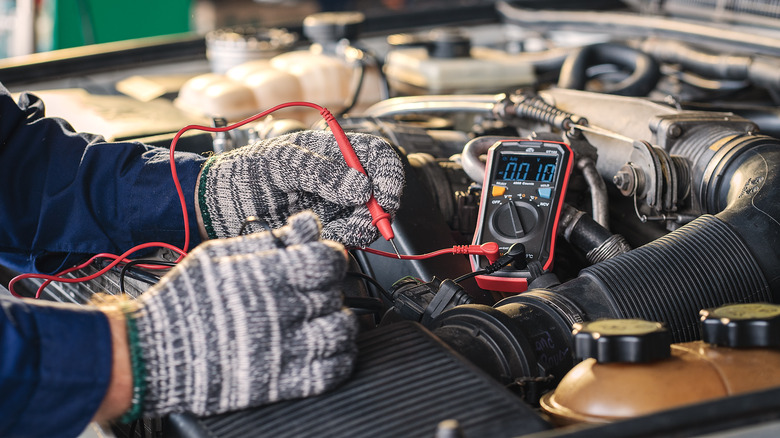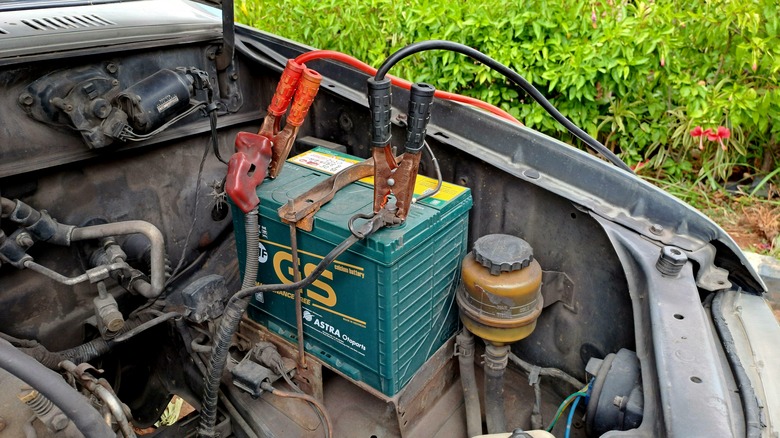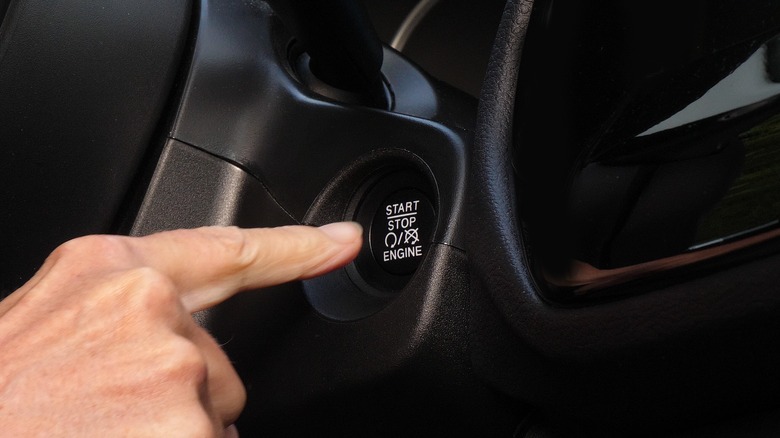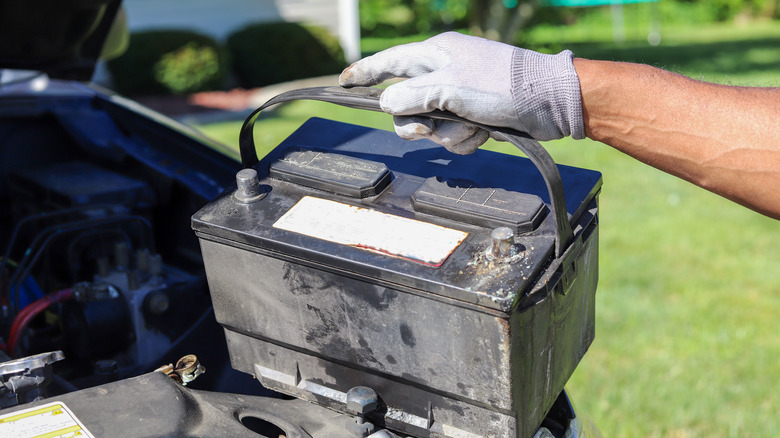3 Signs That It's Time To Replace Your Car Battery
Next to buying new tires and the many maintenance items required to keep a car running, replacing the 12V battery is one of the costliest. Unlike a basic oil change that costs $35 for regular mineral oil, or up to $125 for synthetic oils, a new car battery costs between $185 to $300 for the standard flooded type, and $250 to $400 for a sealed-type VRLA (Valve-Regulated Lead-Acid) battery with AGM (Absorbent Glass Mat) internals. Car batteries only need replacing every two to five years, but they tend to fail or run out of charge in the most inconvenient circumstances.
The cost is the primary reason car owners would likely want their car batteries to last as long as they can, but one can only do so much to keep it ticking for as long as possible. Age is one determining factor if a 12V car battery needs replacing, but older batteries could have a second life, provided the casing is intact and the voltage doesn't fall below 10 volts.
However, nothing lasts forever. Even old batteries that seem okay might need replacing to save you the hassles and headaches of dealing with a dead battery in the future. Here are the telltale signs that your old car battery has given up the ghost.
The battery casing is visibly deformed
The internals of a car battery undergo "sulfation" as they age, causing excessive sulfate crystals to accumulate on the battery plates. A typical car battery undergoes chemical reactions as it discharges and recharges. Prolonged storage or insufficient recharging would cause too many sulfate crystals to collect and cling to the plates.
Those deposits will cause the plates to expand, leading to unsightly bulges on the battery casing. In some cases, the bloated parts might cause harmful leaks. When those leaking battery fluids come in contact with hot parts or sparks under the hood, it could cause a fire.
If your car battery is bloated, misshaped, or has deformities on the casing, it's better to replace it than revive it, even if the battery is less than three to five years old. It's the same with leaky car batteries: Take extra care when removing a bloated car battery from the engine bay. It's better to wear gloves and some eye protection when tinkering under the hood, especially when replacing the battery or cleaning the battery terminals.
Your car is hard starting or is in a no-start condition
In most cases, your car's battery will display some early warning signs of failure. One of these is hard cranking, especially when the engine is cold. With a healthy battery, a single crank can start the engine in any weather. But if the battery is weak or on its way out, it will take two or three cranks (or more) to wake the motor. The same applies to slow engine turnover when cranking, sluggish starts, or — if the battery is terribly weak and cannot hold a charge — a no-start condition.
The starter motor requires high electric currents to turn the engine over. If the 12V battery has insufficient power, it'll have difficulties starting the engine. These symptoms could also be due to a bad alternator or loose battery terminals, though a mechanic's inspection will be able to confirm if that's the case. However, a weak battery is usually the culprit in the absence of other faults. If it usually takes a single click to start your car's engine, but now it takes more, it's likely time to consider a new car battery.
Weak electrical current in lights, windows, and more is also a sign
An old or dying car battery will affect all of the electrical systems in your car, including the headlights, interior lights, the horn, and the electric windows. If your vehicle has a factory-installed alarm or security system, you'll notice the alarm chirps will be weaker, and, in some cases, the door locks will refuse to activate and unlock the doors.
The same applies to the headlights and interior lights, which will start dimming or flickering when idling. A weak battery may cause the dashboard warning lights to illuminate or flicker randomly in some cars, like older Honda CR-Vs. Moreover, pressing the horn will produce a weaker sound, while the electric windows will roll down or rise slower than usual if the battery voltage is low.
Not all car battery brands are equal, and a typical car battery's life depends on many factors, like extreme temperature fluctuations, parasitic drain, excessive vibrations, and the integrity of the alternator and charging system. Paying close attention to the many signs and symptoms of a dead car battery will ensure you and your family get home safely without fear of breakdowns.



